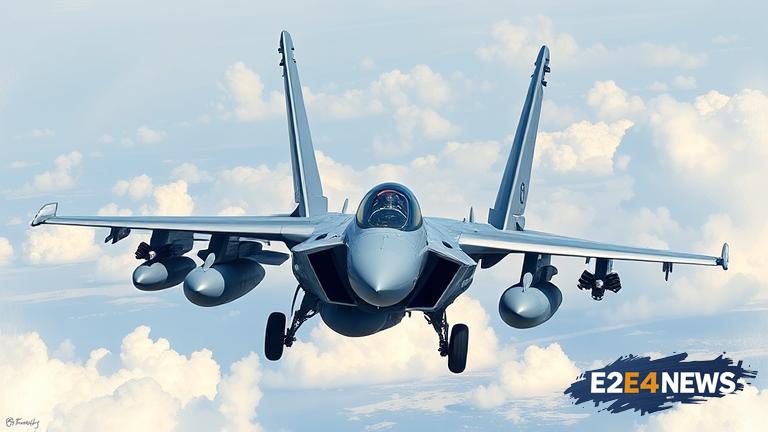Contract talks between Boeing Defense and the US government have resumed, marking a crucial step in the production of F-15 fighter jets. The negotiations, which had been stalled for several months, aim to secure a new contract for the production of the iconic aircraft. The F-15, a twin-engine, all-weather tactical fighter, has been a cornerstone of the US military’s airpower capabilities for decades. With its advanced avionics, radar, and missile systems, the F-15 remains a vital component of the US Air Force’s fleet. The current contract, which expires soon, has been the subject of intense negotiations between Boeing Defense and the US government. The new contract is expected to cover the production of multiple F-15 variants, including the F-15EX, F-15QA, and F-15SA. The F-15EX, in particular, has garnered significant attention, as it represents a major upgrade to the existing F-15 fleet. The new variant boasts advanced radar, electronic warfare capabilities, and increased payload capacity. The production of the F-15EX is expected to create hundreds of jobs and generate significant revenue for Boeing Defense. However, the contract talks have been complicated by issues related to pricing, production schedules, and technical requirements. The US government has been seeking to drive down costs, while Boeing Defense has been pushing for more favorable terms. Despite these challenges, both parties have expressed optimism about the prospects for a successful outcome. The resumed contract talks are seen as a positive development, as they indicate a willingness to engage in constructive dialogue. The US Air Force has emphasized the importance of the F-15 program, citing its critical role in maintaining air superiority. The production of the F-15 is also expected to have significant implications for the US economy, with the creation of jobs and generation of revenue in multiple states. Boeing Defense has invested heavily in the F-15 program, and a successful contract outcome is seen as essential to the company’s long-term prospects. The F-15 program has also attracted significant attention from international partners, with several countries expressing interest in acquiring the aircraft. The production of the F-15 is a complex process, involving multiple suppliers and subcontractors. The contract talks are expected to have a ripple effect throughout the supply chain, with significant implications for companies involved in the production of F-15 components. As the contract talks progress, industry analysts will be closely watching the developments, seeking to gauge the potential impact on the US defense industry. The outcome of the contract talks will also have significant implications for the US military’s airpower capabilities, as the F-15 remains a critical component of the country’s defense strategy. With the resumed contract talks, Boeing Defense and the US government are poised to shape the future of the F-15 program, with significant consequences for the US defense industry, economy, and national security. The negotiations are expected to be protracted, with multiple rounds of talks anticipated before a final agreement is reached. Despite the challenges, the resumed contract talks represent a major step forward, as both parties seek to secure a mutually beneficial outcome. The F-15 program has a long history, dating back to the 1970s, and has undergone multiple upgrades and modernizations over the years. The current contract talks are seen as a critical juncture in the program’s history, as Boeing Defense and the US government seek to chart a course for the future of the F-15. The production of the F-15 is a testament to the ingenuity and expertise of the US defense industry, and the contract talks are expected to have a lasting impact on the sector. As the negotiations progress, industry stakeholders will be closely watching the developments, seeking to understand the implications for the US defense industry and the future of the F-15 program.
